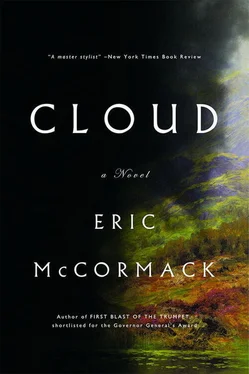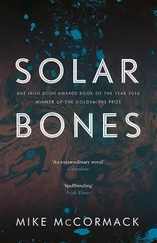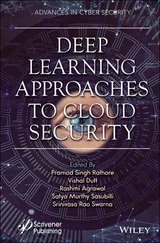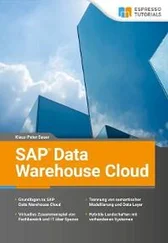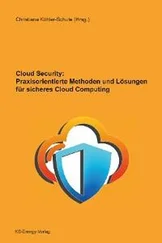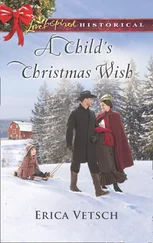LIKE MOST TENEMENT dwellers, we had a cat to keep control of the rats, mice, and cockroaches that lurked everywhere in the building. Penny, our ginger cat, was a stray with the tip of her right paw missing. That didn’t seem to affect the way she’d leap onto the window ledge to check out what was happening on the street below, or onto my mother’s shoulder when she was at the stove, making dinner.
When I was very young, we also had a black half-Labrador dog named Rex, a stray who’d lost his right eye somehow in the streets. My father coaxed him home one day and he settled in. Rex’s main job was to bark when someone came to the door, and he was very good at it. His other job, on winter nights, was to sleep on top of the sack of potatoes in the back room, keeping them warm so they wouldn’t rot. Penny would lie on top of him, purring noisily.
We called him Rex but he was actually a female. It was my father’s idea to give him the masculine name. He felt it was easier for males, whether human or animal, to survive in the Tollgate. He was wrong in this case. One day Rex rushed through the half-open door and down the stairs into the street to greet my father coming home from work. He went under the wheels of a passing coal cart and his back was broken.
We never had another dog.
FOR ME, MAYBE the oddest thing about our family was the fact that both my parents were orphans.
All my father knew about his parents was that they’d been refugees from somewhere. They’d been on an immigrant ship from Amsterdam to New York and, along with dozens of other passengers, they’d been stricken with the Great Influenza. They both died while the ship was anchored off Glasgow. Their only child, my father, who was then six months old, was deemed a Scottish national — his parents’ name, Steen, sounded quite Scottish. He was put in an orphanage ashore and stayed there till he was fourteen.
My mother’s story was more typical. When she was a baby she was found outside another orphanage one cold morning wrapped in a blanket. Nothing was ever known about her parents so a name was selected for her by the administration. After fifteen years, she left the orphanage and became an office cleaner at Random Mill. When she was eighteen she met my father there, they married, and in due course I was born.
In the Tollgate slum, families of ten or twelve children were common. We three, having no other living relatives, were obliged to be everything to each other. Even as a child, I was aware of that burden.
I was also aware that they loved me and each other, though love wasn’t a word you heard much in the Tollgate. Once in a while, my father, puffing at his cigarette and trying not to sound complacent, would say: “There are people born in palaces who don’t have what we have.”
AS I GOT OLDER, my parents asked me to call them by their first names: Joseph and Nora. They hoped I wouldn’t find that objectionable. My mother explained it was because, in the orphanages, children were mainly called only by their last names. My parents were trying to make up for that now.
I said I didn’t object at all.
But secretly I didn’t like being deprived of the use of those powerful words, “mother” and “father.” So, for my own sake, even though I did as they asked, in my mind that’s what I always called them.
I WAS NAMED HARRY. That was in memory of my father’s best friend in the orphanage, a boy who’d died of pneumonia shortly before his tenth birthday and so had never experienced freedom. My parents hoped I’d have a chance to live the kind of life Harry had been denied.
IN THE TOLLGATE, rows of tenements stretched as far as the eye could see. Our apartment was on the fourth floor of one of them. The worn stone stairs that ran up to the various floors were a daily obstacle course of broken bottles and tin cans and also served as latrines for passing drunks.
The apartment, like all the others, had one large living-room-kitchen-bedroom, with an inset bed where my parents slept. There was also a small unheated bedroom at the back, which was mine. The whitewashed ceilings of both rooms were permanently stained with damp.
Aside from the usual ravages of typhus and consumption, almost every row of tenements had something unpleasant in its history. Beatings and stabbings and domestic murders were commonplace. The Tollgate slum was particularly well known for its hereditary razor-wielding gangs, with fathers passing the mantle on to sons. Frequent battles took place over territorial rights.
Even during the war the gang violence continued. Some gang members did join the army, but many preferred to prowl the streets looking for trouble. My father wasn’t surprised.
“What’s the fun in having to shoot people from a distance when you could be slashing their throats from close up?” he said.
He himself had been rejected from military service because of his thin chest and his cough.
“They don’t know what a great warrior they’ve turned down,” he’d complain. Even my mother couldn’t help laughing at that, and he’d dissolve into a fit of laughing mixed with coughing.
AS THE WAR WENT ON, there were frequent air raids on the steelworks and shipyards near the Tollgate, so public shelters with concrete domes were built to give people a place to be safer. But pets weren’t allowed and the shelters leaked so much they were even damper than the tenements. After a while, most people just stayed at home during air raids and took their chances.
We stayed home, too.
“At least if we’re here, nobody can steal our things,” my father once said to me and my mother as he puffed on a cigarette. “That’s the kind of thing people do when too many of them are bunched together. Cities make human beings unnatural. During the outbreaks of bubonic plague in London, people who were infected would deliberately spread it amongst their neighbours. I just read that in a book.”
“But that was hundreds of years ago,” my mother said. “It can’t be the same now. Our neighbours wouldn’t steal from us.” She was looking very anxious.
“Well, maybe it’s not the same in London anymore,” he said. “But I wouldn’t be too sure about the Tollgate.”
She looked even more upset when he said that, and he noticed. He puffed on his cigarette for a while, then said, “On the other hand, maybe you’re right, Nora. You never know. Maybe you’re right.”
DURING THE ENTIRE WAR, none of the rows of tenements in our part of the Tollgate were actually hit by bombs. In the final air raids, though, a really big one didn’t miss by much. We all heard the thud of its impact into a piece of waste ground behind our building. But it didn’t explode.
Later, a group of soldiers came along and disarmed it, and then covered it up with a load of dirt. They put a barbed-wire fence around it along with a warning notice to keep away.
Not long after that, the radio and newspapers announced that the war was over. Soon men who’d been in the army came back, searching for work. My father met some of the job seekers at the offices of Random Mill.
“You can see from the look in their eyes they’ve had to kill people,” he told me one night when my mother was over by the stove out of hearing range. He didn’t follow up with one of his wisecracks, but just puffed at his cigarette. “Don’t tell Nora about that,” he said quietly.
The war hadn’t really affected me much — I had complete faith my parents would protect me from any of the physical dangers around us. But I was prone to other terrors much more frightening than a mere war — for example, I would have awful dreams, though I couldn’t remember most of them when I awoke.
My father tried to make a joke of them.
“Nightmares are very good training for life in the Tollgate,”
Читать дальше
